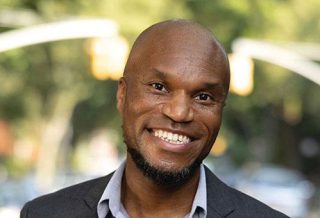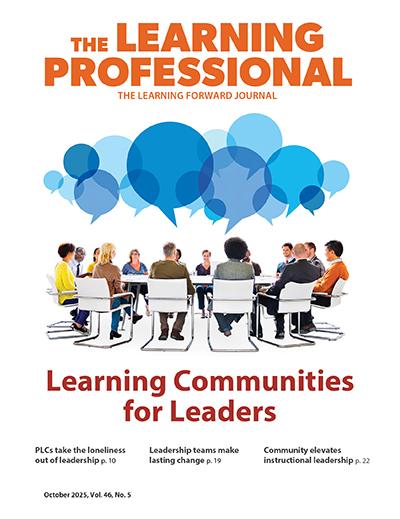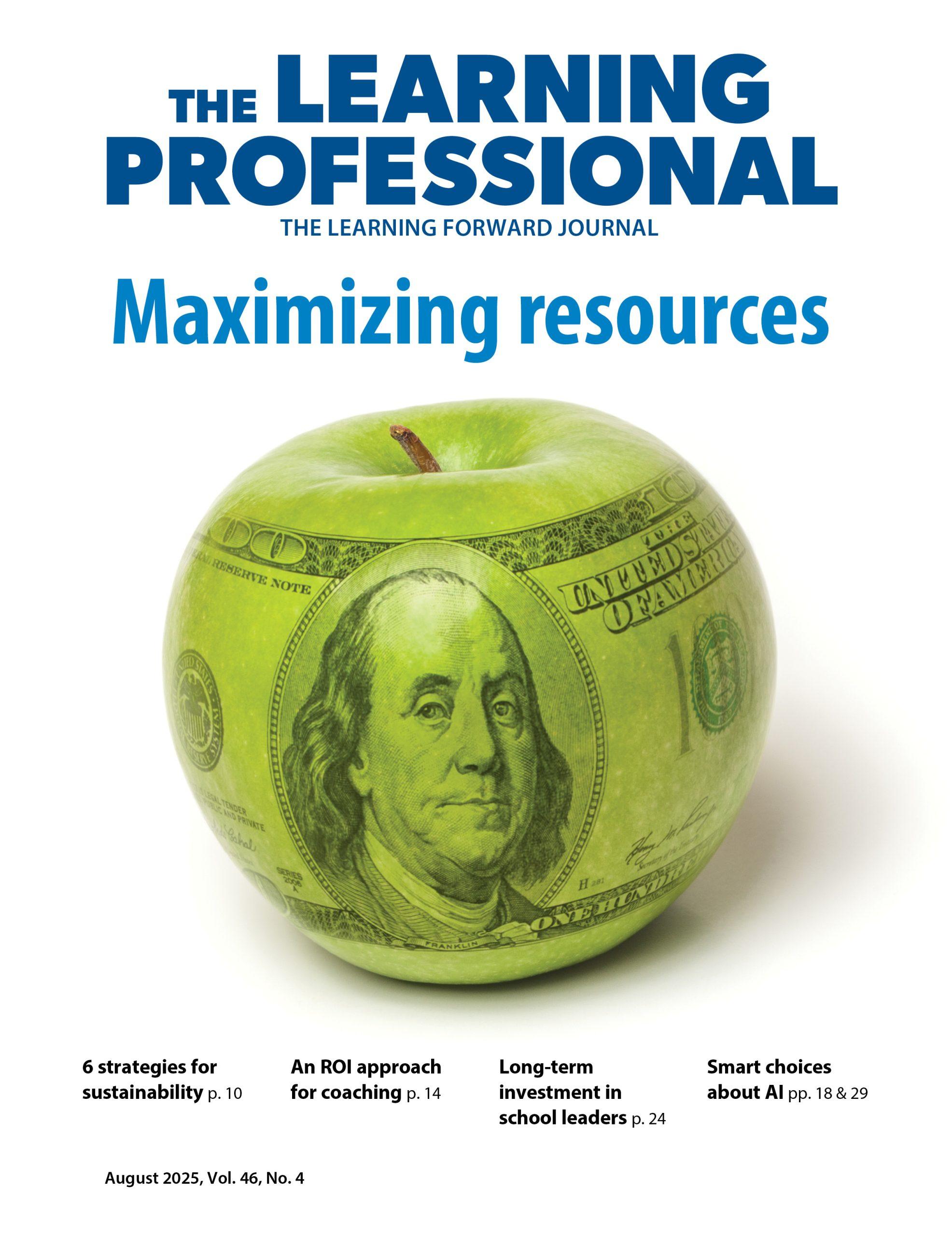FOCUS
Anchors for resilience
Strategies and routines resilient leaders use to balance competing priorities
By Anthony Kim, Tomás Hanna and José Dotres
Categories: Leadership, Learning communities, Learning designs, School leadership, Social & emotional learning, System leadership, Teacher leadershipOctober 2019
Vol. 40, No. 5
Read the remaining content with membership access. Join or log in below to continue.
Sed ut perspiciatis unde omnis iste natus error sit voluptatem accusantium doloremque laudantium, totam rem aperiam, eaque ipsa quae ab illo inventore veritatis et quasi architecto beatae vitae dicta sunt explicabo. Nemo enim ipsam voluptatem quia voluptas sit aspernatur aut odit aut fugit, sed quia consequuntur magni dolores eos qui ratione voluptatem sequi nesciunt. Neque porro quisquam est, qui dolorem ipsum quia dolor sit amet, consectetur, adipisci velit, sed quia non numquam eius modi tempora incidunt ut labore et dolore magnam aliquam quaerat voluptatem.
References
Berger, J.G. & Johnston, K. (2016). Simple habits for complex times: Powerful practices for leaders. Stanford, CA: Stanford Business Books.
Delizonna, L. (2017, August 24). High-performing teams need psychological safety. Here’s how to create it. Available at hbr.org/2017/08/high-performing-teams-need-psychological-safety-heres-how-to-create-it.
Duhigg, C. (2016, February 25). What Google learned from its quest to build the perfect team. The New York Times. Available at www.nytimes.com/2016/02/28/magazine/what-google-learned-from-its-quest-to-build-the-perfect-team.html.
Duhigg, C. (2014). The power of habit: Why we do what we do in life and business. New York, NY: Random House.
Edmondson, A.C. (2019). The fearless organization: Creating psychological safety in the workplace for learning, innovation, and growth. Hoboken, NJ: John Wiley & Sons.
Harbourne, E. (2016, May 18). Decentralized command. Campus Rec. Available at campusrecmag.com/decentralized-command.
Hoffman, R. (2017, December 13). Rules to live by — for infinite learners. Available at www.linkedin.com/pulse/rules-live-infinite-learners-reid-hoffman.
Kim, A., Gonzales-Black, A., & Lai, K. (2018). The new school rules: 6 vital practices for thriving and responsive schools. Thousand Oaks, CA: Corwin.
Kim, A. (2019, January 9). Not so typical personalized learning predictions for 2019. Available at www.edelements.com/blog/not-so-typical-personalized-learning-predictions-for-2019.
re:Work (n.d.). Guide: Understand team effectiveness. Available at rework.withgoogle.com/print/guides/5721312655835136.
Vygotsky, L.S. (1978). Mind in society: The development of higher psychological processes. Cambridge, MA: Harvard University Press.
Willink, J. (n.d.). Extreme ownership. Available at echelonfront.com/what-is-extreme-ownership.
Categories: Leadership, Learning communities, Learning designs, School leadership, Social & emotional learning, System leadership, Teacher leadership
Recent Issues
MAXIMIZING RESOURCES
August 2025
This issue offers advice about making the most of professional learning...
MEASURING LEARNING
June 2025
To know if your professional learning is successful, measure educators’...
NAVIGATING NEW ROLES
April 2025
Whether you’re new to your role or supporting others who are new,...
LEARNING DESIGNS
February 2025
How we learn influences what we learn. This issue shares essential...











